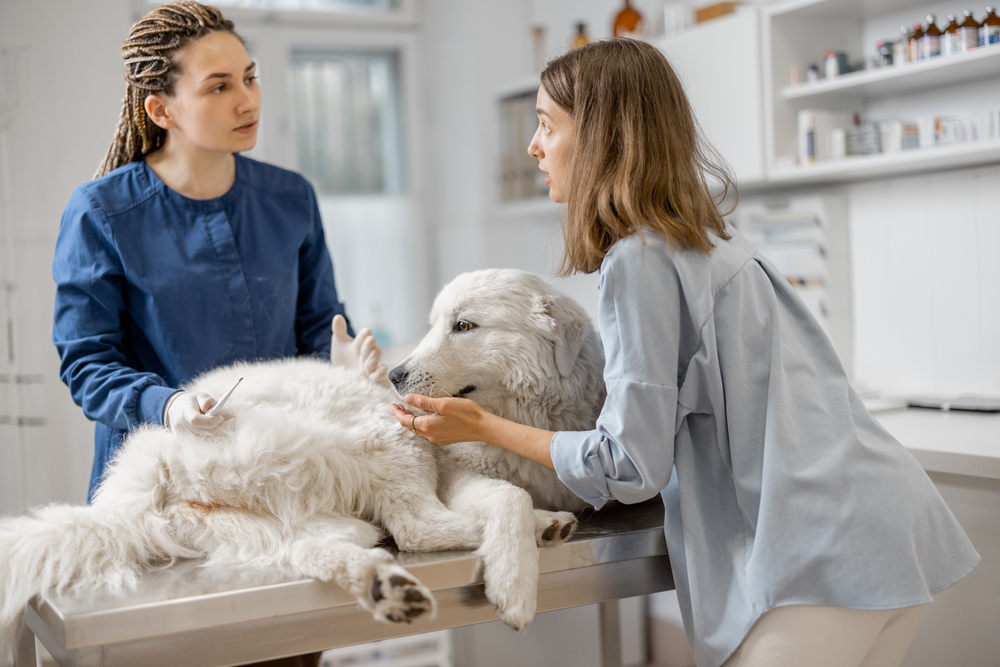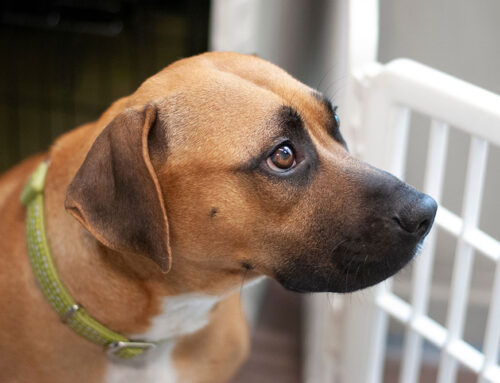Pets have a way of finding trouble, and they can easily find a toxin during their escapades. Toxicities can lead to serious health problems, and many pets are affected every year. Our team at Memorial Villages Animal Hospital wants to help by providing information about common pet toxins, and what steps you should take if your pet is poisoned.
What foods are poisonous to pets?
Several foods that you may enjoy on a regular basis are toxic to pets, and can lead to serious health issues.
- Chocolate — Many people are fond of this sweet treat, and your pet may also find chocolate appetizing. However, chocolate contains two ingredients, caffeine and theobromine, that cause problems for pets. These ingredients induce cardiac and central nervous system stimulation in pets, leading to restlessness, vomiting, and diarrhea, and in severe cases, heart failure.
- Xylitol — This artificial sweetener has a negligible effect on a human’s insulin levels, but when ingested by a pet, xylitol causes a large insulin release, which leads to hypoglycemia, causing vomiting, incoordination, weakness, and seizures.
- Grapes — While grapes and raisins are a healthy snack for you, they are toxic to pets, causing kidney failure. Signs, which may take several days to manifest, include lethargy, decreased appetite, and increased thirst and urination.
- Onions — Any member of the Allium family, including onions, garlic, leeks, shallots, and chives, contains N-propyl disulphide, which is toxic to pets. The compound causes a pet’s red blood cells to break down, causing anemia. Initial signs involve lethargy and vomiting, but as the anemia becomes more severe, signs progress to pale mucous membranes, reddish urine, and collapse.
- Bread dough — Rising bread dough is dangerous to pets, because the ingested dough expands in the pet’s stomach, causing excessive amounts of gas that can lead to bloat. In addition, alcohol produced by the fermenting yeast is absorbed, resulting in alcohol poisoning.
What plants are poisonous to pets?
Many common houseplants and flowers are toxic to pets.
- Lilies — Dogs who ingest lilies can suffer gastrointestinal upset, but in cats, these flowers can cause severe kidney damage, and sometimes death. All parts of the lily plant are toxic, and a small sip of the vase water can have life-threatening consequences for your cat.
- Tulips — Tulips contain alkaloids such as allergenic lactones, which are especially concentrated in the bulb. Typical signs include profuse drooling, vomiting, diarrhea, and increased respiratory rate.
- Philodendrons — These common houseplants contain insoluble calcium oxalates, which are extremely irritating to your pet’s mouth. Signs include excessive drooling, retching, and pawing at their mouth.
- Lavender — Lavender contains linalool, a toxin that causes inappetence and vomiting in pets.
For a complete list of toxic plants, refer to the ASPCA’s toxic and nontoxic plant list.
What medications are poisonous to pets?
Many over-the-counter and prescription drugs are toxic to pets.
- Acetaminophen — This common pain reliever is especially toxic to cats, because their red blood cells’ ability to transport oxygen is decreased. Signs include difficulty breathing, panting, and collapse. In addition, liver damage can occur.
- Decongestants — Pseudoephedrine is a common ingredient found in decongestants that stimulates the nervous and cardiovascular system in pets. Signs include restlessness, agitation, tremors, and panting.
- Heart medications — Drugs such as beta blockers have a narrow safety margin in pets, and an overdose can cause a severe drop in heart rate and blood pressure, leading to lethargy and collapse.
What household products are poisonous to pets?
Many products you likely use regularly in your home are toxic to pets.
- Glue — While great for repairing broken objects, high strength glues can cause serious problems for your pet. When ingested, the substance reacts with your pet’s stomach fluids, forming a large, firm foreign body. Signs include excessive drooling, retching, and abdominal pain.
- Batteries — If your pet chews or ingests a battery, the alkaline or acidic material can cause corrosive injury to their mouth or gastrointestinal tract. Signs include drooling, pawing at their mouth, and abdominal pain.
- Antifreeze — Many antifreeze products contain ethylene glycol, which pets find tasty. Small amounts can lead to significant, life-threatening kidney damage. Initial signs include vomiting, diarrhea, lethargy, and collapse.
What should you do if your pet is exposed to a toxin?

Any toxin exposure is considered a veterinary emergency, and if you know or suspect your pet has been exposed, you should act quickly, to increase your pet’s survival chances.
- Remove the toxic substance — If you catch your pet with the toxic substance, immediately remove the item, so they can’t be exposed further.
- Contact help — Immediately contact Memorial Villages Animal Hospital or Animal Poison Control for professional advice.
- Relay important information — The professional you speak with will ask information about your pet, including their breed, age, weight, their signs, and when they ingested the poison.
- Have packaging — If applicable, have the toxin’s packaging on hand, so you can relay the label’s information.
Hopefully, your pet will never encounter a toxic product, but you now know what steps to take if they are exposed to a poisonous substance. If your pet ingests a toxin, immediately contact our team at Memorial Villages Animal Hospital, so we can begin treatment as soon as possible, and increase their chances for a good prognosis.









Leave A Comment